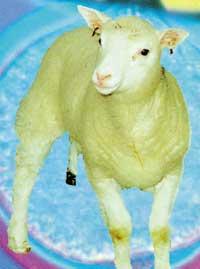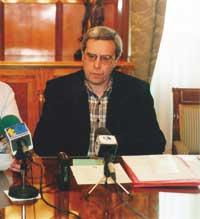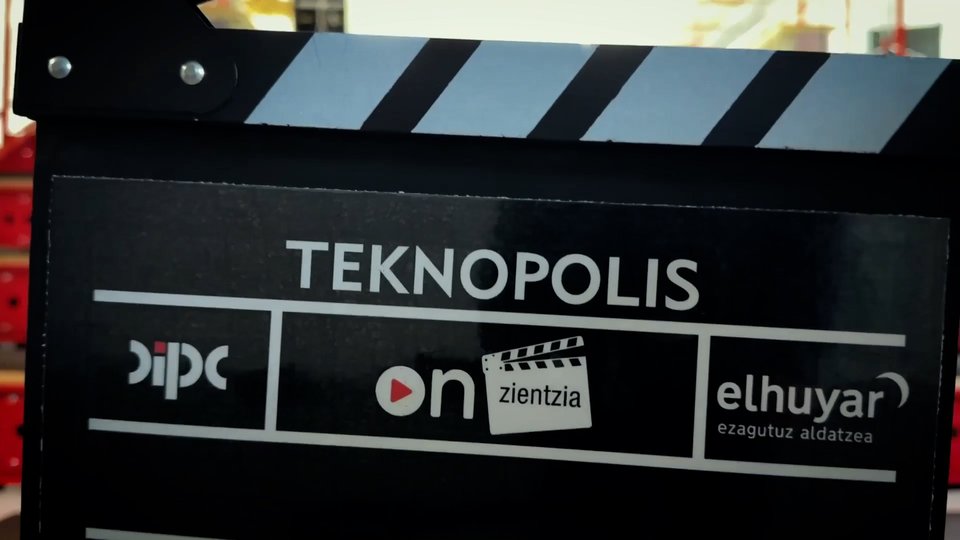Andoni Ibarra: “We are at the gates of a new era”

Clone mammals, clone human beings? Under the title, in March some interesting days were held in Donostia. Andoni Ibarra, professor of the UPV-EHU and associate editor of the magazine Theoria, tells us that in these sessions, announced with a question mark, hardly any answers were found, within the project “Science, Technique and Society” that was carried out on the initiative of the magazine. After his presence, in the program “Norteko Ferrokarrilla”, Ibarra explained the following to us.
Elhuyar: In recent times there has been a great concern for cloning. It seems to us that knowing Dolly, Polly and scientists who are close to cloning to man has created discomfort...
Andoni Ibarra: We, in the seminar we held in the morning and in the talks that took place in the afternoon, have detected a great concern for this topic. Many people have approached, to tell the truth more than expected, and the need to put on the table the ethical problems of cloning has been detected. I think it has been as important as the quantity, the quality of the people who have participated, since it has demonstrated its willingness and desire to take the hand in those debates. In the academic seminar that we held in the morning at the faculties of Law and Philosophy, in addition, we have been able to analyze problems wider than cloning, such as bioethics, biotechnology, etc.
Elhuyar: When announcing the days, you have used the question mark in the leaflets: Clone mammals, clone human beings? Specifically. Have you found the answer you are looking for?
Andoni Ibarra: Of course! The truth is that we have presented our project with a striking question, but basically, we knew we had not answered easily. Furthermore, our goal was not to give concrete answers, but to generate more questions, then discovering ethical and philosophical problems to reflect among all. After all, the problem we have studied does not end with one, it is not so easily separable from black and white, but there is a great variety of greys.
Elhuyar: It is known that science and technology have changed our way of life so far and will continue to change. Recognizing that all science creates a new context, what are the main concerns that genetic engineering awakens us?
Andoni Ibarra: They are very heavy and deep concerns, because in the end we are facing a new era. The development of science and technology has allowed the human being to have influenced his environment, nature, or his own body, a series of important and fundamental changes that did not affect the deepest biological processes.
Cloning and biotechnologies, on the contrary, have led us to a new scenario in which those transformations that the human being can lead also reach those profound biological processes. New opportunities have arisen and we can already decide how we want it to be the human being of the future: decide what its character will be in our hands or, in other words, who will be the promoters of those decisions. And that concern is really new to us, because in this situation the human being has become the true subject of the process. The human being can make a human being and that generates great concerns.
So, we need to know what society thinks. But that is the main concern we have to have at this time. We must bear in mind that without the social representation of human beings, scientific and technological development can hardly be understood, we could not understand the advances that have occurred throughout history, turning the back on the social context. Science and technology are social products and if we do not take into account the feed-back between society and science, we cannot give a full response to the challenge we face. In the decisions to be made on the subject of cloning, we have to participate all of us, be tractors.
Elhuyar: For this it is not enough to have concern, without information we could not reach any place...

Andoni Ibarra: The general conclusion that we have drawn from the days is perfectly coherent with the above. The information has a great importance in the evolution of the process to which we are referring, since all these issues will be raised through the media. There is no more to see the importance that newspapers and especially television have had so far.
If the information that is disseminated in the media serves to build, that is, to create, society can participate democratically in this new era, while if the information is used exclusively to make sensationalism, the contribution of society, the participation of the citizens, is totally distorted. At the end of the conference we highlight the responsibility of the media in two ways: on the one hand, because they have the responsibility to give what is happening in the clearest way possible and, on the other, because that social representation that is emerging from people has to be transmitted in the most objective way to scientists or political leaders. Once again, the media has had to serve as a bridge.
Buletina
Bidali zure helbide elektronikoa eta jaso asteroko buletina zure sarrera-ontzian








